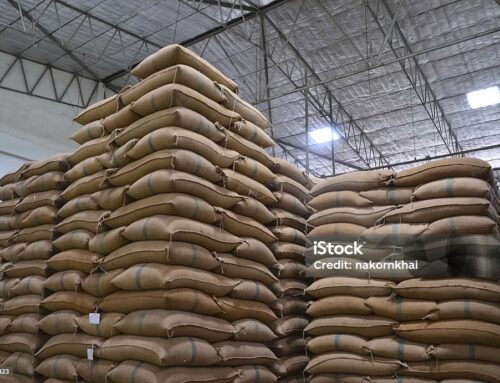
Climate change is not just an environmental issue, it’s an economic one too. The financial cost of climate change is staggering and is already affecting the global economy in significant ways.
The Financial Cost of Climate Change
Climate change is costing the world a whopping $16 million per hour. The global cost of climate change damage is estimated to be between $1.7 trillion and $3.1 trillion per year by 2050. This includes the cost of damage to infrastructure, property, agriculture, and human health.
Over the past 20 years, extreme weather events globally, like hurricanes, floods, and heat waves, have cost an estimated $2.8 trillion. The researchers analyzed studies that used a methodology known as Extreme Event Attribution (EEA), which connects human-related greenhouse gas emissions and changes in extreme weather events.
Impact on the Global Economy
The impacts of climate change are systemic, stressing local economies and causing market failures that affect both consumers and insurers. More frequent catastrophic events, in combination with the need to meet evolving regulatory requirements, can threaten company business models.
The global economy could lose 10% of its total economic value by 2050 due to climate change. The Swiss Re Institute warns that the effects of climate change could wipe off up to 18% of GDP off the worldwide economy by 2050 if global temperatures rise by 3.2°C.
Rising Insurance Costs Due to Climate Change
As natural disasters become more frequent and more costly, insurance companies are facing big challenges. The property losses from natural disasters due to climate change could increase more than 60 percent by 2040 according to Swiss Re, the world’s largest reinsurer. As a result, homeowner policy premiums are projected to increase 5.3 percent per year.
Some 90% of U.S. homeowners saw premiums jump from May 2021 to May 2022, costing an average of $134 more per year. The average increase is 12.1% nationwide, compared to one year ago, but surges have been higher in disaster-prone states like Arkansas, Washington, and Colorado.
Impact on the Agriculture Industry
Climate change has a profound impact on agriculture due to changes in temperature, rainfall, and climate extremes. These changes can lead to shifts in planting dates and increased prevalence of pests and diseases.
Increased temperatures and changes in rainfall patterns can affect crop yields. For instance, warming temperatures can allow crops to be planted earlier, but water stress during a critical growth phase may be detrimental to yield goals.
Moreover, climate change can lead to more soil erosion, which is a major environmental threat to sustainable crop production. Droughts and floods due to climate change may also hinder farming practices.
Impact on the Banking Industry
Banks are under rising regulatory and commercial pressure to protect themselves from the impact of climate change and to align with the global sustainability agenda. Climate change can fundamentally reshape the economy, leaving almost no industry untouched.
Banks need to manage their own financial exposures and help finance a green agenda, which will be critical to mitigate the impact of global warming. Damage to homes and businesses from climate change, including storm impacts, may increase the risk of defaults on loans and the viability of insurance products.
Under a scenario where climate change is not addressed, banks risk being severely affected. In the European Central Bank’s (ECB) 2021 economy-wide climate stress test, losses on corporate loan portfolios were projected to rise significantly over time, with the average corporate loan portfolio 8% more likely to default.
Additional Details
Climate change is causing more frequent and intense natural disasters, which are destroying homes and businesses at record-breaking rates and putting entire food systems at risk. For instance, Hurricane Harvey caused $125 billion in economic damage in 2017. The 2019–20 Australian bushfires killed more than a billion animals and caused more than $4.4 billion in damage.
The effects of climate change are systemic, meaning that they stress local economies and cause market failures that affect both consumers and insurers. More frequent catastrophic events, combined with the need to meet evolving regulatory requirements, can threaten company business models and make insuring some risks unaffordable for customers or unfeasible for insurers.
Conclusion
The financial cost of climate change is immense and its impact on the global economy is significant. Big pillers of economy like agriculture, banking, Insurance industries face significant challenges due to climate change. It’s crucial for these sectors to adapt and mitigate these risks to ensure their sustainability in the future.It’s clear that we need to take action now to mitigate these costs and protect our future. This includes investing in green technologies, reducing greenhouse gas emissions, and adapting to the changes that are already happening. The cost of inaction is simply too high.



